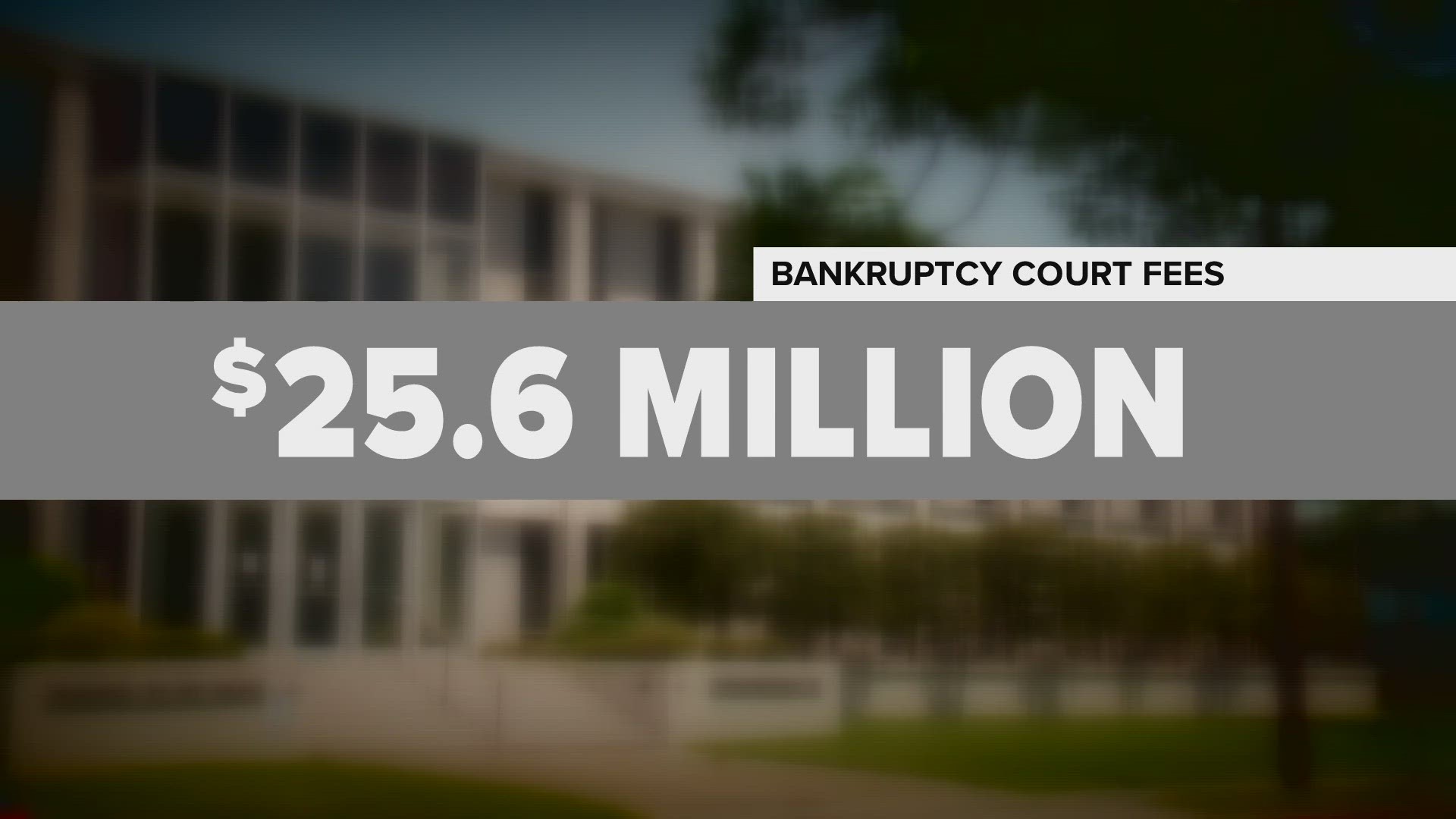NEW ORLEANS — As hundreds of sexual abuse survivors keep waiting for years to see any money from a bankrupt New Orleans Archdiocese, new court filings show the church is paying $25 million to lawyers and consultants in federal bankruptcy court.
That includes $13 million and counting to the church’s own bankruptcy lawyers and accountants, who have fought at every turn to justify the church’s need for protection from creditors and to keep details of clergy abuse from being released to the public.
New documents filed in the archdiocese’s federal bankruptcy case show the mounting legal fees in the church’s three-year effort to protect its finances and pay off its debts. Court records show the white-shoe law firm Jones Walker has billed the archdiocese about $11 million so far, while the firm’s reported expenses have totaled just $282,000.
Jones Walker attorneys Mark Mintz and Dirk Wegmann were charging $400 and $300 an hour for their services until June 1. Those fees just went up last month to $490 and $400 an hour, respectively, and associates Samantha Oppenheim and Caroline McCaffrey’s rates went up from $250 to $300 an hour, according to court records filed this week.
Archdiocese spokeswoman Sarah McDonald said Jones Walker attorneys had been charging a discounted rate, lower than lawyers and consultants for two separate committees of creditors. She said the latest increases for the Jones Walker attorneys still keep their rates lower than those of the creditors’ attorneys.
But the church’s bankruptcy estate is also responsible for covering those legal and professional fees for its creditors. For example, it’s had to pay a committee of commercial creditors – representing vendors who are owed money by the church – more than $2.3 million so far. That appears to be more than the total of what the archdiocese owes those commercial claimants.
Some survivors struggling with finances
“They're the only ones who have been paid throughout this entire process, $25 million later,” said James Adams, a former member of the Catholic Community Foundation board who claims he was abused by a priest when he was 10. He served on the unsecured creditors’ committee until last year.
“We have members of our constituency that we're advocating for who are living on $900 a month, who are struggling,” Adams said. They're not only struggling with the effects of the abuse, they're struggling through these difficult economic times. They want justice for what happened to them. And then we see the lawyers for the archdiocese getting paid these exorbitant fees.”
The archdiocese filed for federal bankruptcy protection in May 2020 amid a deluge of sexual abuse claims against more than 70 former archdiocesan priests and other church employees. Filing for bankruptcy immediately stopped dozens of abuse lawsuits from moving forward.
Adams said that’s the real reason behind the bankruptcy.
“The filing of this bankruptcy seems to be less around the financial matters of the archdiocese and more around protecting the image of the church or … protecting secrets,” he said.
When the archdiocese first filed for Chapter 11 bankruptcy protection, Archbishop Gregory Aymond released a statement explaining: “I believe that this path will allow victims of clergy abuse to resolve their claims in a fair and timely manner."
And at first, it seemed like that might happen.
Negotiations on possible settlement sidetracked
More than 450 clergy abuse victims filed claims by a March 2021 deadline.
In June 2022, a committee of abuse survivors was about to sit down with archdiocese officials, including Archbishop Gregory Aymond, to begin mediation in hopes of negotiating a settlement. But two hours before that first meeting, U.S. Bankruptcy Judge Meredith Grabill stopped it and announced that most of the survivors, including Adams, would be removed from the committee because their attorney, Richard Trahant, had disclosed confidential information from the case.
It later came out in court records that Trahant had tipped off his cousin, the principal of Brother Martin High School, that the school’s chaplain, the Rev. Paul Hart, had admitted in church files to having had sexual contact with a 16-year-old girl. The Times-Picayune reported the Archdiocese hadn’t considered Hart’s actions to be child sexual abuse because church law at the time still considered 16-year-olds adults.
That conflicted with state law at the time and the church law was later changed, after the Boston Globe “Spotlight” investigation in 2002 exposed rampant abuse and coverups in the Boston Archdiocese and started a nationwide reckoning for the church.
Grabill ruled Trahant violated the bankruptcy court’s secrecy order. She fined Trahant $400,000 to cover the legal expenses of the leak investigation. He’s now appealing that ruling.
Meanwhile, Trahant’s clients and hundreds of other claimants are still waiting for their money. One is Aaron Hebert, who claims the Rev. Lawrence Hecker molested him in 1968, when Hebert was 13. Hecker is still alive, and Hebert says he has a childhood friend who claims he was raped by Hecker. That case may still be ripe for criminal prosecution, but Mintz and Wegmann have fought to keep the church’s internal files on Hecker sealed.
“The church, with the amount that they're paying (in legal fees), they're not financially bankrupt; they're morally bankrupt,” Hebert said.
But McDonald said the archdiocese and its attorneys are trying to get the bankruptcy case resolved as quickly as possible. Jones Walker has had to work with two different creditors’ committees to produce hundreds of thousands of pages of records, she said.
"The length of time and cost of these proceedings are shocking and very disappointing to us,” she said. “We have had several mediation sessions and are working proactively towards bringing the bankruptcy to conclusion."

